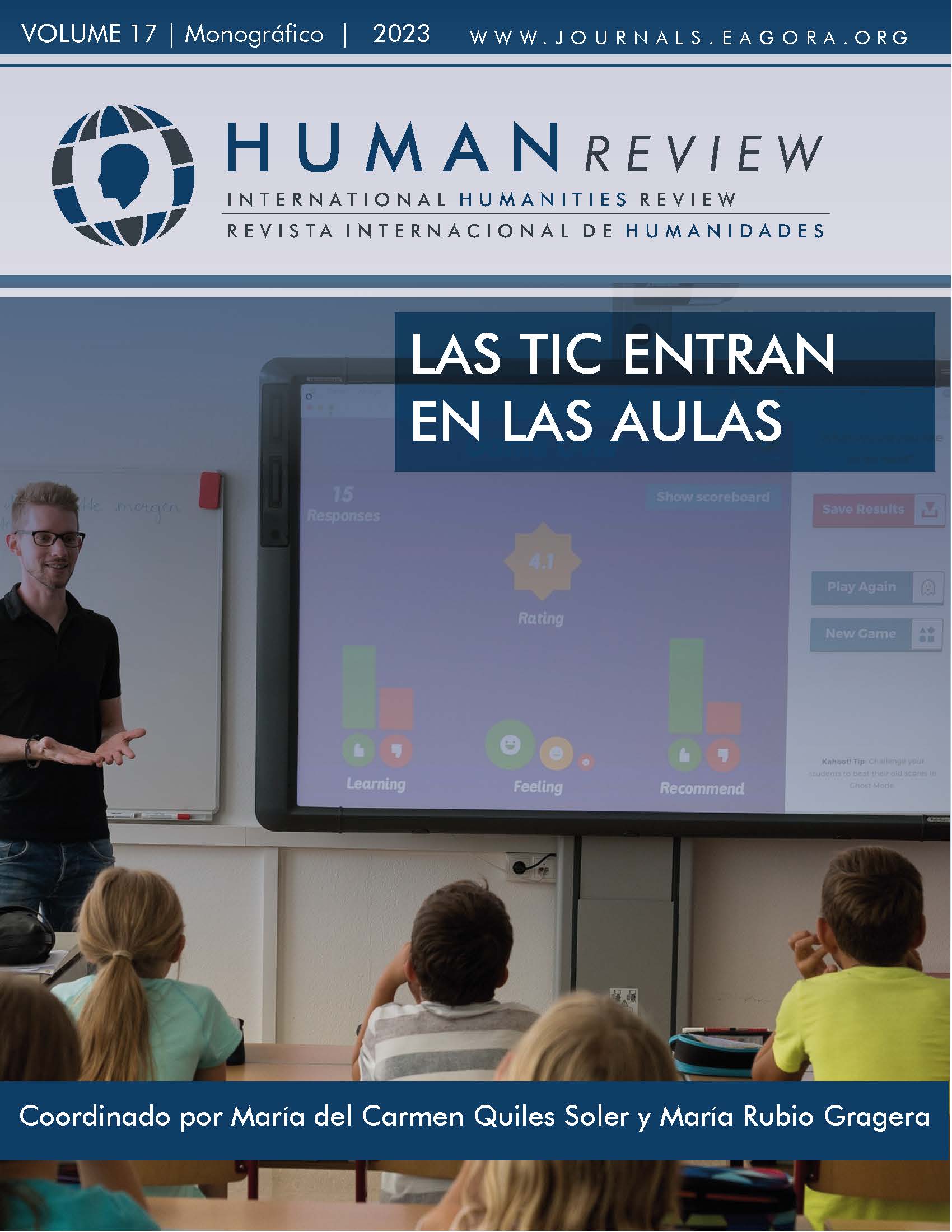Perception of social exclusion by digital media in postgraduate students
Analysis of social exclusion and types of digital divide in an online postgraduate course
DOI:
https://doi.org/10.37467/revhuman.v12.4754Keywords:
Digital Exclusion, Digital Divide, Long Distance Education, Postgraduate, CITAbstract
Today, having digital skills and access to technological devices is of utmost importance to continue learning. This study analyzes the perception of digital exclusion by students enrolled in an online graduate program. The Results show that students have access to digital devices and Internet, and that the perception of exclusion is mainly due to the lack of digital skills. Subjects of this study who do not feel excluded, consider the existence of a school gap, due to their greater use and knowledge of digital tools with regards to the application made by the institution.
References
Area, M. y Adell, J. (2021). Tecnologías digitales y cambio educativo. Una aproximación crítica. REICE. Revista Iberoamericana sobre Calidad, Eficacia y Cambio en Educación, 19(4), 83-96. https://doi.org/10.15366/reice2021.19.4.005
Cabero-Almenara, J., & Ruiz-Palmero, J. (2018). Las tecnologías de la Información y Comunicación para la inclusión: reformulando la brecha digital. International Journal of Educational Research and Innovation (IJERI), 9, 16-30.
Cabrera, L., Pérez, C.N. & Santana, F. (2020). ¿Se Incrementa la Desigualdad de Oportunidades Educativas en la Enseñanza Primaria con El Cierre Escolar por el Coronavirus?, International Journal of Sociology of Education, Special Issue: COVID-19 Crisis and Socioeducative Inequalities and Strategies to Overcome them, 27-52. http://doi.org/10.17583/rise.2020.5613
COTEC (2020). Covid-19 y educación II: escuela en casa y desigualdad. COTEC. https://bit.ly/2URkyhw
Fernández Enguita, M. (2020, 31 de marzo). Una pandemia imprevisible ha traído la brecha previsible. Blog Cuaderno de Campo. https://blog.enguita.info/2020/03/una-pandemia-imprevisible-ha-traido-la.html
Fernández-Río, J., Lopez-Aguado; M., Pérez-Pueyo, Á., Hortigüela-Alcalá, D., y Manso-Ayuso, J. (2022). La brecha digital destapada por la pandemia del coronavirus: una investigación sobre profesorado y familias. Revista Complutense de Educación, 33(2), 351-360.
García-Leal, M., Medrano-Rodríguez, H., Vázquez-Acevedo, J. A., Romero-Rojas, J. C. & Berrún-Castañóna, L. N. (2022). Brecha digital de género en docentes de educación básica durante pandemia por COVID-19 . Revista Andina de Educación 5(1), 1-11.
Gil-Quintana, J., y Vida de León, E. (2022). Brecha Digital Versus Inclusión en Educación Primaria. Perspectiva de las Familias Españolas. REICE. Revista Iberoamericana sobre Calidad, Eficacia y Cambio en Educación. 20(2), 85-104. https://doi.org/10.15366/reice2022.20.2.005
Granado, M. (2019). Educación y exclusión digital: los falsos nativos digitales. Revista de Estudios Socioeducativos, 7, 27-41. https://10.25267/Rev_estud_socioeducativos.2019.i7.02
INEGI (2021). En hogares. Instituto Nacional de Estadística y Geografía. https://www.inegi.org.mx/temas/ticshogares/
Pinto Arboleda, M. C. (2014). La construcción de la referencia en torno al concepto de brecha digital en España. Signo y pensamiento, 33(64). https://doi.org/10.11144/Javeriana.syp33-64.crtc
Piñuel Raigada, J. L., Martínez Solana, M. Y., & Martín García, T. (2022). Una exploración del capital cognitivo ante discursos del odio por racismo. Perspectivas de la comunicación, 15(2), 59-98.
Sánchez, E. A., Inzunza, S., & Ávila, A. (2015). Probabilidad y estadística I. Grupo Editorial Patria.
Velásquez Benites, O., Apaza Jilaja, E. V., Medina Castro, D. E., & Blanco Ayala, L. F. (2022). Exclusión educativa en Perú: Desde las épocas prehispánicas hasta el bicentenario de la República. Revista De Ciencias Sociales, 28(4), 470-483. https://doi.org/10.31876/rcs.v28i4.39142
Downloads
Published
How to Cite
Issue
Section
License
Those authors who publish in this journal accept the following terms:
- Authors will keep the moral right of the work and they will transfer the commercial rights.
- After 1 year from publication, the work shall thereafter be open access online on our website, but will retain copyright.
- In the event that the authors wish to assign an Creative Commons (CC) license, they may request it by writing to publishing@eagora.org









